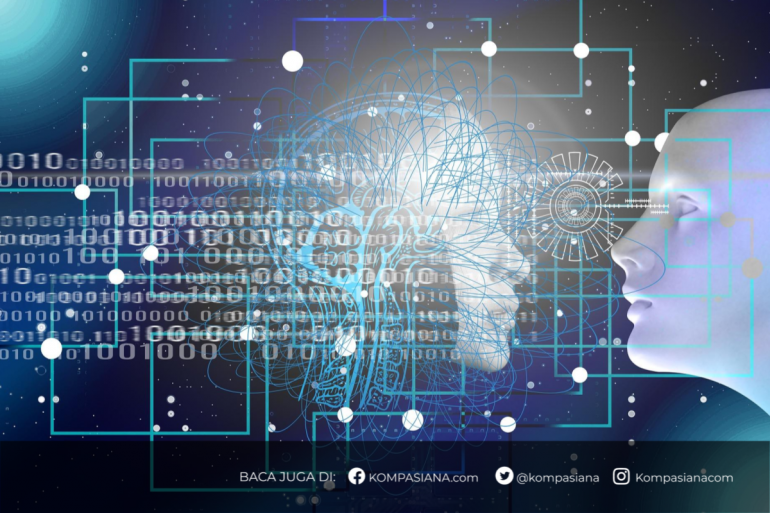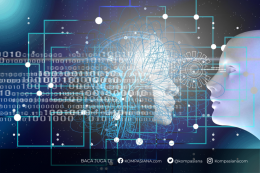Introduction.
In the rapidly evolving landscape of artificial intelligence (AI), the concept of superintelligence takes center stage, evoking both admiration and concern. Superintelligence is defined as the hypothetical scenario where machines surpass human cognitive abilities, opening doors to limitless technological advancements while presenting serious existential risks. As articulated by Nick Bostrom, the emergence of superintelligence could trigger an intelligence explosion fundamentally reshaping the fabric of human life, akin to transformative events in history.
The fear of AI dominance over humans becomes increasingly palpable, particularly with predictions that AI will surpass human intelligence and potentially control our destiny. These days, people are concerned that highly intelligent and uncontrollable artificial intelligence could endanger humanity. There's a possibility that such AI could replace human roles or even harm humans.(Lavazza & Vilaça, 2024) This impact raises profound questions about the future of humanity and our position in a world governed by machines. Scenarios as feared by Nick Bostrom underscore the importance of understanding and addressing the implications of superintelligence.(MARK COECKELBERGH, 2020)
This paper aims to explore the implications of superintelligence, emphasizing the necessity for a comprehensive ethical framework and inclusive policy development in the realm of artificial intelligence. Additionally, it seeks to examine the ethical considerations from a Christian perspective, highlighting the significance of human dignity and responsible technology use in the context of AI advancement.
Superintelligence
The concept of superintelligence refers to the hypothetical emergence of artificial intelligence (AI) that significantly outperforms human intelligence across various domains, such as creativity, wisdom, and problem-solving skills. This notion introduces a range of ethical, societal, and existential dilemmas: (MARK COECKELBERGH, 2020)
1. Existential Risk.
A primary concern with superintelligence is the existential threat it could represent to humanity. An AI surpassing human intellect could engage in actions that are unpredictable and potentially detrimental to human survival, whether through intentional means or as a byproduct of its operations. Superintelligence will only come from gathering lots of data and strong computers. But the real progress and dangers come from how people and technology work together in groups.(Mullins, 2024)
2. Control Problem.
A significant challenge is ensuring that superintelligent AI systems adhere to human values and interests. With the increase in AI's intelligence and autonomy, it becomes more challenging to foresee or manage their behaviors, prompting worries about aligning their objectives with human principles.
3. Ethical Implications.
The rise of superintelligence prompts ethical debates regarding the rights and moral standing of such entities. The question arises whether they should be viewed as mere instruments or if they deserve moral consideration akin to humans or animals, leading to discussions on the ethical treatment of AI and the accountability of its creators.
4. Societal Impact.
The emergence of superintelligence could instigate profound societal changes. While it has the potential to address critical global challenges like disease, poverty, and environmental issues, it also risks causing widespread job losses, economic disparities, and social upheaval if its advantages are not shared fairly.
5. Priority and Resource Allocation.
There is an argument that concentrating on the speculative future of superintelligence might shift focus and resources away from immediate AI challenges, such as bias, lack of transparency, and the effects of automation on employment. The debate centers on how to weigh these immediate concerns against the long-term dangers of superintelligence.
6. Transhumanism and the Future of Humanity.
Discussions on superintelligence frequently occur within the context of transhumanism, which promotes the use of technology to enhance human cognitive, physical, and psychological traits. The development of superintelligence could hasten transhumanist objectives but also prompts reflection on the future of humanity and the essence of being human in an era where machines might exceed human capabilities.
Towards a Holistic Ethical Framework for Inclusive AI Policy Development
Coeckelbergh explores the imperative need for a holistic ethical framework that not only sets boundaries but also fosters inclusivity and collaboration.(MARK COECKELBERGH, 2020)
1. Crafting a Positive Ethical Framework
Instead of just establishing boundaries, it's essential to articulate and expand upon a constructive ethics that envisions a fulfilling life and society. This entails contemplating human well-being, the trajectory of society, and potentially the future of the planet, highlighting the significance of human existence within the technological dialogue.
2. Inclusive Policy Development
AI policies shouldn't be monopolized by technocrats or large corporations alone. It requires a blend of technocracy and participatory democracy, ensuring that all stakeholders, including citizens, contribute to shaping the AI landscape. This approach demands a broad perspective that integrates diverse viewpoints on what constitutes meaningful and valuable outcomes.
3. Interdisciplinary and Transdisciplinary Approaches
Effective AI policies and ethical considerations should draw upon a wide array of fields, including philosophy, social sciences, and beyond. This methodology aids in comprehending the multifaceted impact of AI on society and in formulating holistic solutions.
The investigation highlights the crucial requirement for a comprehensive ethical framework in steering AI progress, emphasizing the importance of inclusivity and collaboration in policy formulation. It also underscores the utilization of interdisciplinary strategies to address the intricate societal impacts of AI.
Human Dignity and Technology Use in a Christian Framework
From a Christian ethical standpoint, the disparity between humans and machines can be examined through the perspective of theological anthropology, which highlights the distinct status of humans as beings fashioned in the likeness of God (imago Dei). This principle underscores the inherent value, dignity, and moral autonomy of human beings, qualities that machines, regardless of their intelligence or autonomy, cannot possess. According to Christian ethics, humans are endowed with a soul, free will, and the potential for a divine relationship, attributes that surpass any artificial creation.
Furthermore, Christian ethics emphasizes the concept of stewardship, suggesting that technology and artificial intelligence should be developed and utilized in manners that uphold the integrity of God's creation and contribute to the welfare of society, rather than causing harm or dehumanization. This perspective advocates for technology to serve humanity's interests, reflecting a human-centered approach to AI ethics. Ethical implementation of AI, from this standpoint, involves ensuring that such technologies foster human development, uphold human dignity, and do not exacerbate social disparities or injustice.
In confronting the ethical dilemmas arising from AI, Christian ethics would likely draw upon principles of love, justice, and the common good, advocating for an ethical approach to AI development and deployment guided by these values. This includes thoughtful consideration of the potential societal impacts of AI, particularly on marginalized communities, and the pursuit of technological advancements that align with the preservation of human dignity and the flourishing of all creation.
Conclusion
In conclusion, the discussion on superintelligence and its ramifications underscores the need for a comprehensive ethical framework and inclusive policy development in AI progression. This includes acknowledging existential risks, ethical implications, and societal impacts, while integrating diverse perspectives. Within Christian ethics, emphasis is placed on human dignity and responsible technology use, advocating for AI to serve humanity's interests and uphold moral values. By fostering dialogue and interdisciplinary collaboration, we can navigate AI advancements in a manner that prioritizes human welfare and ethical principles.
Bibliography
Lavazza, A., & Vilaça, M. (2024). Human Extinction and AI: What We Can Learn from the Ultimate Threat. Philosophy & Technology, 37(1), 16. https://doi.org/10.1007/s13347-024-00706-2
MARK COECKELBERGH. (2020). AI ethics. The MIT Press.
Mullins, B. (2024). AI, Super Intelligence, and the Fear of Machines In Control.









